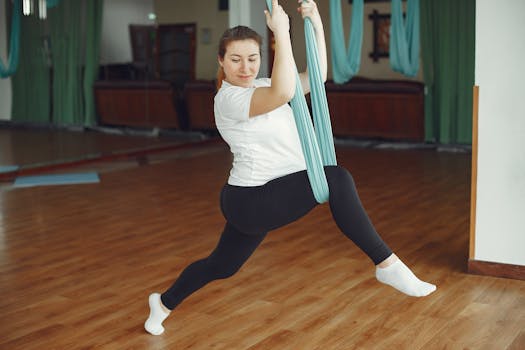Unlocking Happiness: The Mental Health Benefits of Regular Physical Activity
Takeaways: Regular physical activity is a powerful tool for improving mental health. It can reduce symptoms of depression and anxiety, enhance mood, and promote overall well-being. Whether it’s a brisk walk, a dance class, or a tough gym session, moving your body can unlock a happier, healthier you!
Hey there, friends! If you’re anything like me, you might have days when getting off the couch feels like an Olympic sport. But what if I told you that just moving your body a bit more can seriously boost your mental health? That’s right! Regular physical activity has some incredible benefits for our minds, and today, I want to share my personal journey and insights on how getting active has helped me—and can help you, too!
The Connection Between Movement and Mood
Let’s start with a little story. A couple of years ago, I found myself feeling low, unmotivated, and just plain blah. I knew I needed to do something, but the thought of hitting the gym felt daunting. Instead, I decided to take small steps (literally!) and started with evening walks around my neighborhood. To my surprise, those simple strolls did wonders for my mood! I felt lighter, more engaged with my surroundings, and even started to notice the beauty in little things, like the way the sunset painted the sky.
So, what’s happening here? Well, research shows that regular physical activity can lead to the release of endorphins, often dubbed the “feel-good” hormones. These little guys are natural painkillers and mood elevators! Just a brisk walk or a jog around the block can trigger their release, making you feel happier almost instantly.
Reducing Anxiety and Stress
Now, let’s chat about anxiety. As someone who has battled anxiety on and off, I can tell you that exercise has been a game-changer for me. When I work out, I’m not just improving my body; I’m also giving my mind a much-needed break. It’s like hitting the reset button! The rhythmic nature of physical activity, whether it’s running, cycling, or even dancing, can help calm the mind and reduce the endless loop of anxious thoughts.
For example, on particularly stressful days, I like to crank up my favorite tunes and dance it out in my living room. It’s a fun way to shake off the stress, and I can’t help but laugh at myself while doing it! Plus, the act of focusing on movement helps to ground me in the present moment, which is crucial for managing anxiety.
Building Resilience and Confidence
Another benefit of regular physical activity is the boost in self-esteem and confidence it brings. When I started seeing improvements in my fitness, like being able to run longer or lift heavier weights, I felt a surge of pride. Each accomplishment, no matter how small, built my resilience and encouraged me to push through challenges—both in and out of the gym.
Setting fitness goals and achieving them can translate into other areas of life, too. Whether it’s tackling a work project or facing personal challenges, the confidence gained from regular exercise can empower you to take on anything! Plus, it provides a sense of purpose and a routine, which is incredibly beneficial for mental health.
Making It Fun and Sustainable
Okay, so now that you’re convinced of the benefits, how do you make physical activity a regular part of your life? Here’s the kicker: it doesn’t have to be boring! Find what you love. For me, it’s Zumba classes and hiking with friends. Maybe for you, it’s joining a sports league or practicing yoga. The key is to keep it enjoyable so that it becomes a habit, rather than a chore.
Also, don’t forget to celebrate your progress! Whether you’re tracking your steps, celebrating a fitness milestone, or simply enjoying how you feel after a workout, acknowledge your achievements. This positive reinforcement can keep you motivated and on the path to better mental health.
FAQs
1. How much exercise do I need to improve my mental health?

2. What type of exercise is best for mental health?
Any type of exercise you enjoy is beneficial! Aerobic activities like running, cycling, and dancing are particularly effective, but strength training and yoga can also greatly enhance mental well-being.
3. Can I see immediate benefits from exercising?
Absolutely! Many people report feeling happier and more relaxed immediately after a workout due to the release of endorphins. Consistency, however, will bring about the most significant long-term benefits.
4. How do I stay motivated to work out regularly?
Find activities you love, set achievable goals, and consider working out with friends to keep it social and fun. Remember to celebrate small victories and be kind to yourself on tough days!
5. What if I have physical limitations?
Always consult with a healthcare provider for personalized advice. Many low-impact exercises, such as swimming or chair yoga, can still provide mental health benefits!






